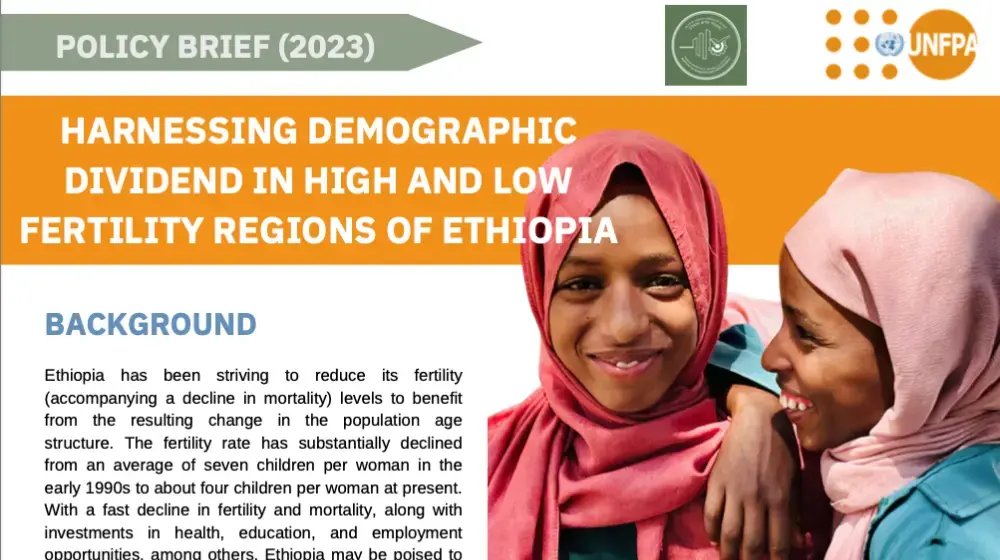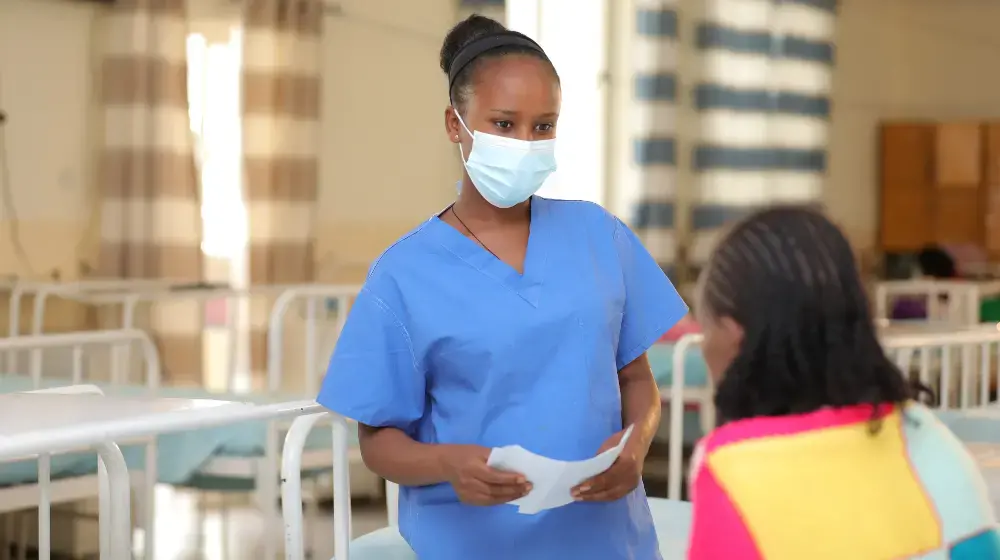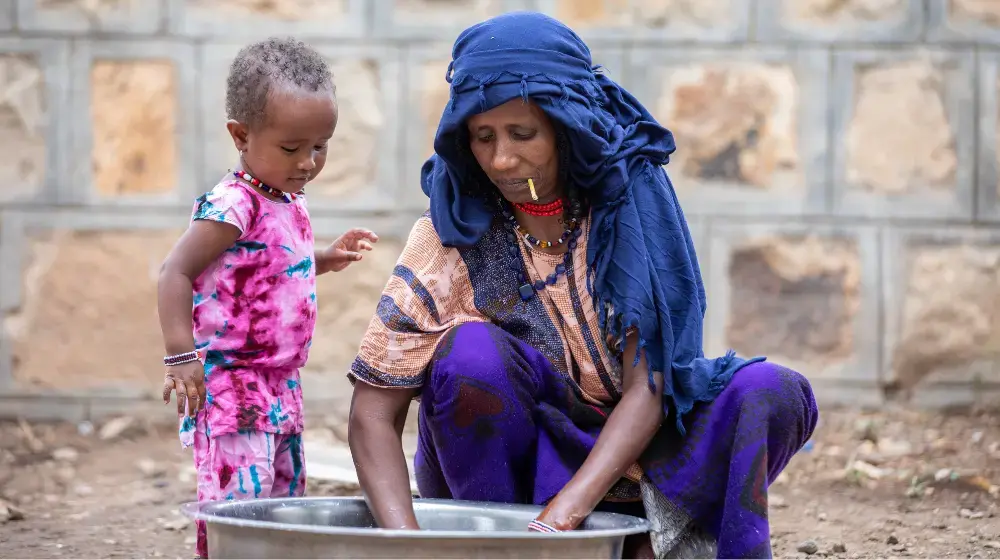GAMBELLA, Ethiopia—UNFPA’s Deputy Executive Director (Programme), Dereje Wordofa, and a team of UNFPA Regional Directors and Country Representatives this week visited Gambella, one of nine ethnic divisions in Ethiopia, which hosts more than 423,000 refugees.
About 64 per cent of these refugees are under 18 years old and 88 per cent of them are women and children.

(centre), and the UNFPA leadership team that included Dr. Julitta
Onabanjo (far right) on a visit to the maternity ward at Gambella
Hospital, in Gambella, Ethiopia. © UNFPA Ethiopia/Abraham Gelaw
While the recent peace agreement between Ethiopia and Eritrea is likely to bring new opportunities in the socio-economic and political dynamics in the Horn of Africa, at present Gambella has particularly poor maternal health services. A relatively high proportion of women still giving birth at home, with the assistance of traditional birth attendants. The region has only one referral hospital.
There has been increasing concern for the safety of vulnerable groups, especially women and girls travelling long distances to collect firewood, food and water.
The leadership team, which included Dr. Julitta Onabanjo, UNFPA Regional Director for East and Southern Africa, visited a UNFPA-supported women-friendly space, which is part of a project that helps address sexual and gender-based violence in humanitarian settings, and has both prevention and response components.
The centre provides education, vocational training and life skills to survivors who receive psycho-social counselling. Cases are referred to health institutions and legal bodies for further follow-up.
The women-friendly space is a place where girls can visit after school to participate in recreational activities.
In addition to the humanitarian response in the region, the increase in demand for social services among both host communities and displaced people remains a challenge to be addressed, as this is creating tension among refugees.
- By Abraham Gelaw and Aimee Manimani Nsimire





